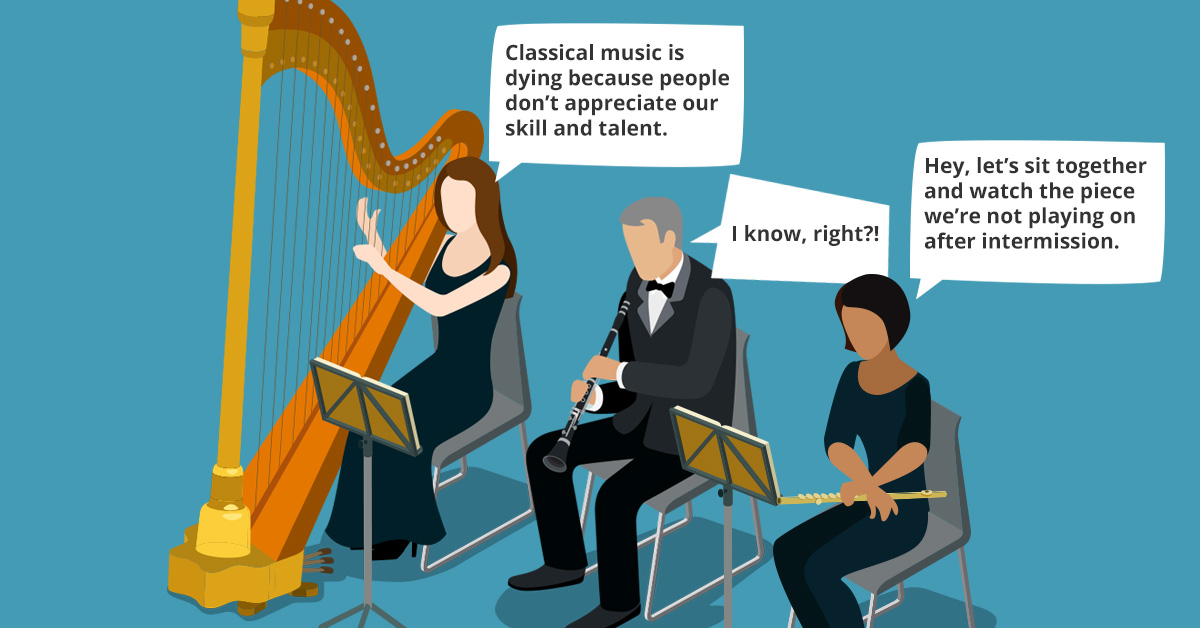For far too long, orchestras have relied on a combination of hierarchical tradition and path of least resistance to arrive at terms for musician individual agreements. Unfortunately, this is exactly the sort of environment that leads to cronyism, discrimination, and resentment. I like to call it the garbage in, garbage out method of negotiating individual agreements.
I strongly recommend everyone take the time to begin reading up on a recent bombshell out of the Boston Symphony Orchestra (BSO) in the form of a lawsuit filed by their principal flute, Elizabeth Rowe, alleging sex-based pay discrimination.
 In a nutshell, here are some of the key points from Row’s complaint (emphasis added to items of note that haven’t been getting the attention they deserve in initial reports):
In a nutshell, here are some of the key points from Row’s complaint (emphasis added to items of note that haven’t been getting the attention they deserve in initial reports):
- The BSO discriminated on the basis of gender in the amount of its pay under contracts of compensation for orchestra members holding comparable endowed principal chairs performing comparable work, by paying women less than that paid to men performing comparable jobs.
- Utilizing employees’ salary histories which were demonstrably a tainted variable incorporating gender bias which was systemic in orchestral selection and pay practices.
- Utilizing contracts guaranteeing males a fixed percentage above base salary while offering no female any such automatic adjustment.
- By utilizing an overscale salary criteria based on suppressing the pay of those playing instruments traditionally played by women.
- The BSO does not utilize a system which measures earnings by quantity or quality of production, sales, or revenue.
In short, the alleged problems appear to stem from a lack of meaningful compensation policy.
And no, the whole “we’ll pay every principal the same minimum figure to guarantee fairness” approach does not constitute a meaningful compensation policy. That’s called a collective bargaining agreement and orchestra musicians already have one.
One of the most challenging aspects of negotiating suitable terms for individual agreements is engaging in a thorough valuation process.
We’ll be diving into all of this and more next week as I want to have time to thoroughly review the full complaint before wading into the depth of detail this issue deserves.
For now, here are some articles you can read to begin wrapping your head around all of the issues (check back throughout the day as I’ll add to the list as articles appear at new outlets).
- Flutist Is First to Sue Under Massachusetts Equal Pay Law, Jennifer Schuessler, July 6, 2018. NYTimes.com (includes a quote from BSO principal oboe, John Ferrillo).
- Boston Symphony Orchestra flute player takes equal pay fight to court, Brian Dowling Wednesday, July 04, 2018. bostonherald.com
- The BSO’s Top Flutist Is Suing the Organization for Violating the Equal Pay Law, Hayley Glatter, July 5, 2018. bostonmagazine.com
- Seeking Pay Equity, Female Flutist Sues Boston Symphony Orchestra, Anastasia Tsioulcas, July 5, 2018. npr.org.
- Boston Symphony first to be sued under new equal-pay law, Greg Ryan, July 5, 2018. bizjournals.com/boston.
Given the enormous complexities surrounding this issue, I would implore all readers to refrain from snap judgements and embrace this as the first step in a longer process of learning about this issue.


